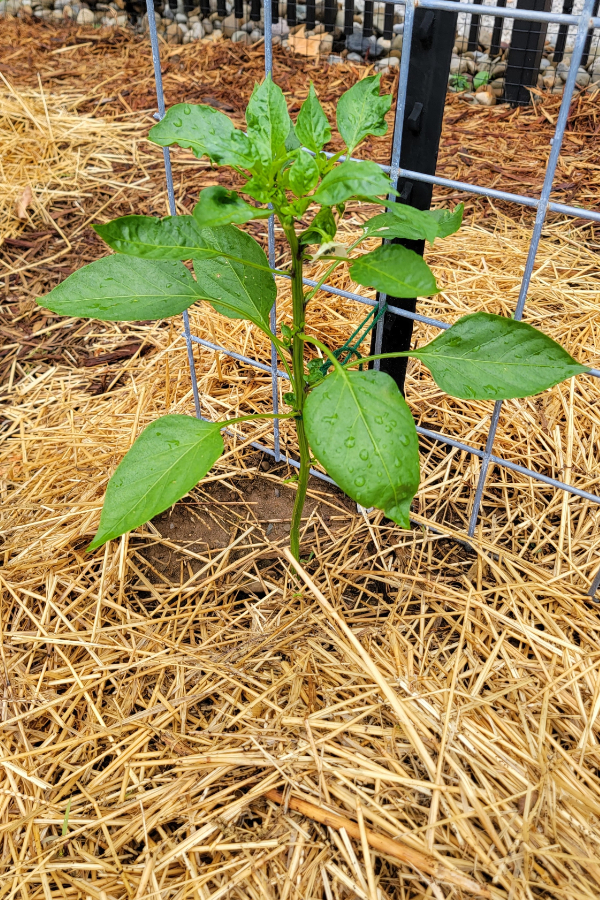Organic Vs. Synthetic Fertilizers: Which Is Best for Nurturing Healthy Pepper Plants?
In the realm of supporting healthy and balanced pepper plants, the choice between natural and synthetic plant foods stands as a crucial decision with far-reaching implications. While both alternatives aim to offer essential nutrients to sustain plant development, the nuances of their effect on the dirt, plant health, and the setting stimulate a discussion that echoes throughout the gardening area. Comprehending the distinct benefits and potential challenges of each fertilizer type is vital for pepper cultivators looking for to enhance their yields while keeping an eco-conscious and lasting method.
Advantages of Organic Plant Foods
Organic fertilizers use an environmentally-friendly and lasting method to beneficial pepper plants, giving necessary nutrients without making use of artificial chemicals. These all-natural fertilizers are stemmed from natural sources such as garden compost, manure, bone dish, and algae, promoting dirt wellness and biodiversity. Unlike synthetic fertilizers, natural alternatives release nutrients gradually, ensuring a consistent and well balanced supply for pepper plants to thrive.
One substantial advantage of natural plant foods is their ability to enhance soil structure and water retention. By enhancing dirt health, organic fertilizers promote beneficial microbial activity, which aids in nutrient uptake by pepper plants. Additionally, organic plant foods reduce the threat of chemical run-off, protecting water sources from contamination and securing the atmosphere.
Additionally, natural fertilizers contribute to long-term dirt fertility by promoting the development of useful dirt microorganisms. These microorganisms help damage down natural issue, launching nutrients in a type that is quickly obtainable to pepper plants. best fertilizers for peppers. By promoting a healthy and balanced dirt environment, organic plant foods support lasting pepper cultivation methods that profit both plants and the setting
Disadvantages of Synthetic Plant Foods
Synthetic fertilizers, as opposed to their natural counterparts, position numerous downsides when utilized to nurture pepper plants, impacting both plant wellness and ecological sustainability. One major drawback of synthetic plant foods is their propensity to seep nutrients from the soil swiftly. This fast leaching can lead to nutrition inequalities in the soil, causing plants to struggle with deficiencies or poisonings. Furthermore, synthetic plant foods can damage useful dirt microorganisms, such as earthworms and useful germs, disrupting the soil community's balance.
Furthermore, the overuse of artificial plant foods can add to water air pollution. Excess fertilizers not absorbed by plants can wash away into water bodies, bring about eutrophication, where algae blooms diminish oxygen levels in the water, hurting water life. Additionally, artificial fertilizers are generally originated from non-renewable resources, such as fossil gas, contributing to carbon emissions and environmental deterioration during their production.
Nutrient Absorption Contrast
Efficient nutrient absorption plays a critical function in the overall health and development of pepper plants. When contrasting synthetic and natural fertilizers in terms of nutrient absorption, organic plant foods have the benefit of offering a much more balanced and slow-release resource of nutrients (best fertilizers for peppers). Organic plant foods have a variety of macro and micronutrients that are not just valuable for the plants however additionally promote healthy and balanced soil microbial activity, which assists in nutrient uptake. On the other hand, artificial plant foods commonly provide a quick release of nutrients, which can result in seeping and drainage, leading to lower nutrient absorption rates by the plants.
Additionally, natural site web plant foods enhance soil structure and water retention capacity, permitting pepper plants to accessibility nutrients extra efficiently. This improved soil high quality facilitates origin development, making it possible for much better nutrient absorption. Synthetic plant foods, although originally increasing plant growth due to their high nutrient focus, might impede long-lasting nutrient absorption by derogatory dirt health and wellness gradually.
Ecological Influence Considerations

On the various other hand, synthetic plant foods, although usually more focused and promptly offered to his comment is here plants, can have detrimental results on the atmosphere if not used appropriately (best fertilizers for peppers). Their production calls for high energy inputs, resulting in greenhouse gas exhausts and contributing to environment modification. The drainage of excess synthetic plant foods can infect water sources, leading to eutrophication and hurting water environments.
Finest Plant Food Practices for Peppers
To achieve this, it is essential to follow best plant food techniques customized to the details requirements of pepper plants. One vital method is to do a dirt test before applying any fertilizers.
Another important practice is to fertilize pepper plants at the appropriate time. Typically, peppers gain from receiving fertilizer at growing and after that once more when they begin to blossom. Over-fertilizing can cause vitamins and mineral inequalities and damage the plants, so it is essential to adhere to suggested application prices.
Furthermore, choosing a balanced plant food with an NPK proportion that fits pepper plants' demands is essential. Organic fertilizers, such as garden compost or manure, can be exceptional options as they launch nutrients gradually and improve dirt structure with time. Artificial fertilizers can give a quick nutrient boost when required. Ultimately, incorporating organic and synthetic plant foods sensibly can aid nurture healthy and balanced pepper plants while lessening environmental effect.
Conclusion

Organic plant foods provide a lasting and environmentally-friendly approach to nourishing pepper plants, supplying important nutrients without the use of artificial chemicals. Unlike synthetic fertilizers, organic alternatives release nutrients slowly, guaranteeing a balanced and stable supply for pepper plants to prosper.
Artificial plant foods, in comparison to their organic counterparts, position different negative aspects when used to nourish pepper plants, impacting both plant health and wellness and environmental sustainability. When comparing natural and artificial fertilizers in terms of nutrient absorption, natural plant foods have the benefit description of giving a more balanced and slow-release source of nutrients.Moreover, natural plant foods enhance soil structure and water retention capability, permitting pepper plants to accessibility nutrients much more effectively.